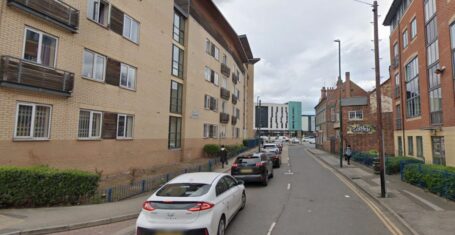
UoN strikes: It’s not our fault, so why are we the ones being punished?
I’m tired of the failing cycle of strikes
Strikes are taking place yet again, following an announcement by the UCU (University and College Union). They say uni staff are at “breaking point” and are seeking better pay, pensions and working conditions.
While I sympathise with university staff, it is difficult to not feel let down and frustrated. I only just finished my first full week of face-to-face teaching since beginning my degree eighteen months ago – and now my studies are being disrupted yet again.

Strikers on the picket line in 2021
University students are being unfairly penalised
Many of us are missing vital content, losing important contact hours and are unable to access support from our tutors. We are the ones who will suffer from this decision, not the university.
A significantly larger percentage of arts teaching staff in the union. Therefore, as a language student, I will lose out on a larger percentage of teaching and support than some of my friends who are on different courses. A few of my friends have even told me they have no changes in regards to classes and that their teaching isn’t even being affected. The arts students are bearing the brunt of this dispute. How is this fair?
This round of strikes, I am set to miss nearly a whole month’s worth of teaching for certain modules. As a second year, my grades contribute to my overall degree classification and missing out on content and contact with my tutors makes my anxiety over completing my summer assessments that much higher. I’ve barely started and feel as though it will be left to me to teach myself in order to have any chance of getting decent grades at the end of the year.
I can’t imagine how final year students who need advice on their dissertations must feel. In such a pivotal time in their degree, how is it fair to restrict the quality of their education yet again?
With last year mostly online, strikes in December, and now more again in February, I feel like I am paying thousands of pounds to just sit in my room. It isn’t what I had envisioned for supposedly the ‘best years of my life’. This isn’t the university experience I was promised.

Feel like I’ve been chained to my desk since September..
We have almost no control over the university on this matter
Students who support lecturers are asked to send emails to Shearer West to voice their support. We are also told that we can join the picket line or refuse to cross it.
But, in the grand scheme of things, the power of current students is limited. Notably, we can’t readily take our business and money elsewhere. All the strikes are doing at this point is damaging us, but they aren’t hurting the university and the sector enough to make them change.
Many of the disputes are set at a national level, too, and strikes are occurring at 68 different universities across the UK. In other words, many of the decisions are not made, negotiated or controlled by UoN itself.
We have almost no control over the university and the way in which decisions related to working conditions, pay and pensions are made, so why are we the ones to suffer and lose out on our education and university experience?

Students on the picket line during the last wave of strikes
The cycle of strikes aren’t working
This is the fifth time since 2019 that lecturers have decided to strike. Can’t they see that it isn’t an effective way of making change?
Put simply: the strikes aren’t working. They aren’t forcing universities to make the concessions that the union want. Every time they call for a combination of better pay, pensions or working conditions. A final agreement to end the strikes seems incredibly far away. Meanwhile, students continue to suffer.
Whenever there’s a strike, the uni simply sends us an email, our lectures get cancelled, and a couple weeks later, teaching just goes back to normal. Cycles of strikes are seemingly becoming a regular routine. It’s damaging and, ultimately, feels pointless.

Strikers in the 2019-2020 academic year
I support the concerns which the striking lecturers are highlighting, however, I can’t help but feel the only thing they achieve with strikes is angering those who they promise to help – the students. Granted, I don’t know what else they can do. But I do I know that the current cycle of strikes the UCU are mandating isn’t it. They have to start doing things differently.
They say they are at “breaking point”. We are too.

Campus, 2022
A University of Nottingham spokesperson said: “We are sorry for any disruption caused to students during the current period of industrial action by members of the University and College Union, and will account for this by rescheduling sessions, providing resources through Moodle, extending deadlines where helpful and ensuring that assessments reflect the learning that has taken place.
“Without reforms to the pension scheme, staff would face increases in how much they pay into the pension of 12 per cent in April and a further 17 per cent in October 2022 – an extra £858 in pension costs over the first twelve months for someone earning £40,000 – with contributions set to rise further every six months until 2025.
“We work within national-level pay arrangements but at Nottingham we also make additional pay increments which mean that a significant proportion of our staff received pay increases in August of between 3.5 per cent and 4.5 per cent. Currently, we invest more than half of our cost base in staff pay which is consistently higher than the Russell Group average.
“We have also been reducing our gender and ethnicity pay gaps, with a task group dedicated to reducing these further. For colleagues employed on casual contracts, we intend next year to replace these with formal contracts for Graduate Teaching Assistants, and are already piloting their use in a school this year.”
The UoN UCU have been approached for comment but are yet to provide a response.









































